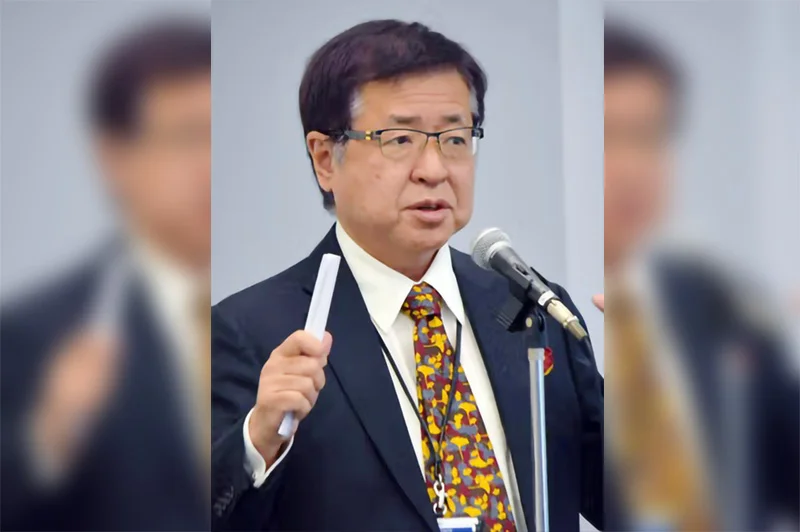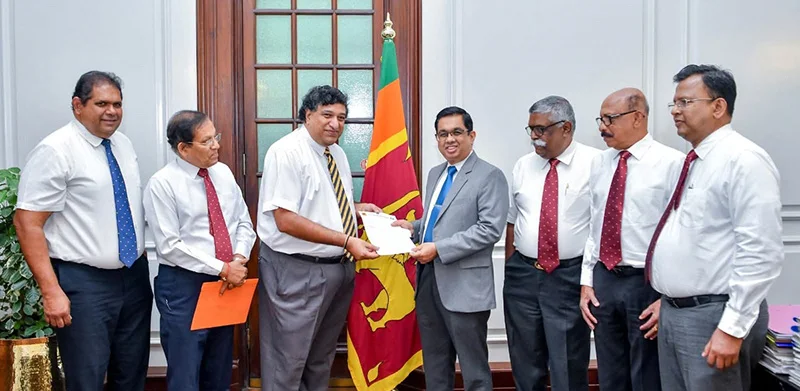Business
Three listed companies adopting share split strategy to boost liquidity & share price

Each existing EB Creasy share to be split into 100
Three companies listed on the Colombo Stock Exchange have announced decisions to subdivide their existing issued shares with no change in their stated capital in what is considered a measure intended, in the view of brokers and analysts, to increase the market liquidity of their shares with prospects to increase their price post-subdivision.
Among those companies that has announced subdivision of shares is old-established EB Creasy and Co. PLC, a member of the Colombo Fort Land and Buildings group, where a subdivision of each existing share into 100 new shares is pending.
The other two companies where subdivisions are pending are CIC Holdings PLC where a subdivision of each existing share into four has been announced and Lanka Aluminium Industries PLC where each existing share would be split into five.
Although there have been share splits since the new Company law came into effect on 2007, brokers and analysts could not recall a share split as big as what is proposed by EB Creasy which concluded its last Annual General Meeting for the year ended Mar. 31, 2020, on Dec. 30. A dividend of Rs. 18 per share (pre-share split) was adopted.
“Given that the company’s issued capital (stated capital is what now applies) was small, the Creasy share which is seldom traded has commanded a very high price on the trading floor of the CSE,” a broker said.
It last traded a few days ago between Rs. 3,150 and Rs. 3,070 with 506 shares changing hands in 34 trades. Its par value per share was Rs. 10 when par values applied. That concept went out with the introduction of state capital under the new company law.
Brokers and analysts said that there is a push-up factor possible in share splits but this has not always worked out.
“Consider an example of a company whose share is trading at Rs. 50 when a split of two new shares for each existing share is announced. Theoretically each new share should then be worth Rs. 25 but it doesn’t always work out that way, depending on market conditions. Shareholders always hope for a favourable movement from such measures,” a broker said.
CIC Holdings which has two classes of shares, voting and non-voting, will divide each existing share into four. An Extraordinary General Meeting has been called for Jan. 5 to secure shareholder approval for the proposed measure. The subdivision will apply to both voting and non-voting shares.
The CIC voting share last traded on the CSE between Rs. 184.90 and Rs. 182 closing at Rs. 182.30 with 57,601 shares transacted in 53 trades. The company paid two interim dividends of one rupee each for the financial year ended Mar. 31, 2020.
At Lanka Aluminium, each existing share will be split into five. Its share last traded at a range of Rs. 112.70 to Rs. 113.30 closing at Rs. 112.70 with 71,059 shares transacted in 119 trades. The company paid a first and final dividend of one rupee for the last financial year.
Business
Steps leading to the achievement of SL’s national interest in IOR

Sri Lanka needs to build awareness, effective policies and encourage regional multilateral frameworks to develop a multi-pronged approach to secure its national interest and safeguard regional stability in the Indian Ocean Region (IOR), as the region together with its seabed have become an area of strategic competition, former Assistant Chief Cabinet Secretary to former Japanese Prime Minister Shinzo Abe, Prof Nobukatsu Kanehara said.
“The Indian Ocean has been a maritime highway for millennia, with Sri Lanka being a midway point of the flow of trade, culture, technology and intellectual progress, Prof Kanehara said at the 4th Pathfinder Foundation Sri Lanka Indian Ocean Security Council Conference held recently at the Cinnamon Grand Hotel. The forum was presided over by Pathfinder Foundation Sri Lanka Chairman Ambassador (retd.) Dr. Bernard Goonetilleke.
The forum’s purpose was to obtain expert commentary regarding the need for Sri Lanka to ‘up its game’ in the IOR.
Abe said that from the 1870s onwards, the Indian Ocean had become the global communications highway, with the British Empire laying submarine cables from Aden to Mumbai, linking Europe to South Asia.
‘Since then, with the passage of time, Ceylon, and later Sri Lanka, has seen the bulk of the global digital communications umbilical laid through its maritime domain of influence, with over a dozen such cables laid over the island’s Exclusive Economic Zone (EEZ) thus far, he said.
Prof. Kanehera added: ” With the rise of Artificial Intelligence (AI) and increasing digitisation, such submarine cables have become critical strategic infrastructure for the island nation as well as the region.
‘This timely conference came as world powers rushed to secure critical minerals needed to maintain a technology edge over rivals, both militarily and economically, disrupting the longstanding rules-based order, especially at sea and in trade.
‘The lack of cognition regarding how to understand and navigate the return to a near Cold War era strategic competition in the Indian Ocean, and increasingly in the sub-surface domain and the seabed, among Sri Lanka’s policy making community, bureaucrats and public leaves the economically weakened island nation more vulnerable to geopolitical coercion, shocks and tug-o-war, which will likely increase in the coming decade.’
By Hiran H Senewiratne
Business
Automobile Association of Ceylon donates towards Disaster Relief Support Fund

Automobile Association of Ceylon (AAC) donated Rs. 25 Million towards the Disaster Relief Support Fund to assist the Ditwah Cyclone victims.
A donation was handed over to Dr. S N Kumanayake, Secretary to the President of Democratic Socialistic Republic of Sri Lanka by Dhammika Attygalle, President – AAC at the Presidential Secretariat on the 19th February 2026 in the presence of Executive Committee members.
Dhammika Attygalle President AAC (third from Left) handing over the cheque to Dr S N Kumanayake, Secretary to the President of Democratic Socialistic Republic of Sri Lanka.
In the picture L-R Lasitha Gunaratne- EXCO Member – AAC, Devapriya Hettiarachchi – Secretary -AAC, P H Liyanage, P B Kulatunga & Indunil Udaya – Members of the EXCO – AAC
Business
‘Sri Lanka’s first AI-powered digital trainer for Banca partners’

HNB Assurance PLC recently introduced NAVI, The Digital Trainer, a new AI-powered training companion designed to support its banca staff with instant, reliable access to knowledge, whenever they need it. The solution was unveiled at Partnership Life, the company’s annual forum dedicated to celebrating the performance of its Partnership Channel.
Built to make learning simpler and more accessible, NAVI is a voice-enabled AI chatbot that helps banca staff quickly find product information, policy details, and process-related guidance by drawing from a centralized knowledge bank. Whether on the go or at the point of customer interaction, NAVI ensures that answers are never out of reach.
Sharing his thoughts, Sanesh Fernando, Chief Business Officer / GM – Partnership Channel at HNB Assurance, opined, “With NAVI, our intention is to make learning a part of everyday conversations. By combining chat and voice capabilities, we are making it easier for our officers to learn on demand and perform with greater confidence.” He further noted that it is this continuous focus on meaningful innovation that has consistently set HNB Assurance apart within the bancassurance space. “Solutions like NAVI reflect the way we think and operate as a Partnership Channel. This commitment to enabling our partners and bancassurance officers through practical, forward-thinking initiatives has been a key driver in our journey, one that has seen us being recognized as the Best Life Bancassurance Provider for five consecutive years, while also delivering strong and sustained growth year after year.”
Commenting on the launch, Suneth Jayamanne, Chief Information Officer / GM of HNB Assurance, said, “We see NAVI as a support system rather than a piece of technology. Our Bancassurance officers operate in fast-paced environments and having instant access to the right information can make all the difference. NAVI is about helping our people feel more prepared, more confident, and more connected to the knowledge they need to serve customers better.”
The launch of NAVI was marked by an engaging reveal featuring an AI-generated avatar that introduced the digital trainer and its capabilities, symbolizing a shift towards a more intuitive and people-friendly approach to learning.
As HNB Assurance continues to expand its Partnership Channel, innovations such as NAVI highlights the company’s focus on building strong, well-supported partnerships, blending technology with a deep understanding of how people learn, and work.
HNB Assurance PLC (HNBA) is one of the fastest growing Insurance Companies in Sri Lanka with a network of 79 branches. HNBA is a Life Insurance company with a rating of ‘A’ (lka) by Fitch Ratings Lanka for ‘National Insurer Financial Strength Rating’. Following the introduction of the segregation rules by the Insurance Regulator, HNB General Insurance Limited (HNBGI) was created and commenced its operations in January 2015; HNBGI continues to specialize in motor, non-motor and Takaful insurance solutions and is a fully owned subsidiary of HNB Assurance PLC. HNB General Insurance has been assigned a ‘National Insurer Financial Strength Rating’ of ‘A’ (lka) by Fitch Ratings Lanka Limited. HNBA is rated within the Top 100 brands and Top 100 companies in Sri Lanka by LMD and HNB Assurance has won international awards for Brand Excellence, Digital Marketing and HR Excellence including the Great Place To Work® Certification, and won many awards for its Annual Reports at award ceremonies organized by the Institute of Chartered Accountants of Sri Lanka.
-

 Features3 days ago
Features3 days agoWhy does the state threaten Its people with yet another anti-terror law?
-

 Features3 days ago
Features3 days agoReconciliation, Mood of the Nation and the NPP Government
-

 Features3 days ago
Features3 days agoVictor Melder turns 90: Railwayman and bibliophile extraordinary
-

 Features2 days ago
Features2 days agoLOVEABLE BUT LETHAL: When four-legged stars remind us of a silent killer
-

 Features3 days ago
Features3 days agoVictor, the Friend of the Foreign Press
-

 Latest News4 days ago
Latest News4 days agoNew Zealand meet familiar opponents Pakistan at spin-friendly Premadasa
-

 Latest News4 days ago
Latest News4 days agoTariffs ruling is major blow to Trump’s second-term agenda
-

 Latest News4 days ago
Latest News4 days agoECB push back at Pakistan ‘shadow-ban’ reports ahead of Hundred auction













